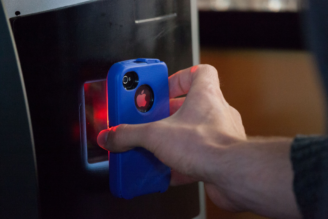Auto Loans vs Leasing: Which is Better?
Auto loans or leasing? Compare the pros and cons of each option to find out which is better for your budget, lifestyle, and financial goals.
Difference Between Auto Loans vs Leasing

Buying a car is a significant decision, and choosing between financing or leasing can be a complex challenge. Both options have advantages and disadvantages that depend on your lifestyle, financial goals and how you intend to use the vehicle.
With financing, you acquire the car over time, while with leasing, you enjoy the vehicle for a set period, but don’t actually own it.
Let’s take an in-depth look at each of these alternatives, helping you to make the decision that best suits your needs and financial goals.
What is a car loan?
When you choose a loan, you are basically borrowing money to buy the car. The vehicle is yours from the start, but you pay back the total amount in monthly installments over a few years, usually three to seven.
One of the biggest advantages of this option is that once you’ve paid off the car, it’s completely yours. You can drive it as much as you like, customize it the way you like and resell it when you see fit. What’s more, there are no mileage limits or penalties for excessive use.
How does leasing work?
Leasing works more like a long-term rental. You pay a monthly fee to use the car for a set period, usually two or three years.
At the end of the contract, you can choose to return the car, renew the contract or, in some cases, buy it back by paying a residual value.
One of the main advantages of leasing is the lower monthly cost compared to financing. This option is especially attractive for those who like to change their cars frequently, as it gives them access to newer models without the commitment to buy.
On the other hand, leasing does have some restrictions. You cannot exceed a mileage limit defined in the contract without paying additional fees. In addition, as the car will never be yours, there is no financial return, even after years of payments.
When should I opt for a loan?
A loan is the ideal choice if you value car ownership. It gives you complete freedom to customize the vehicle, drive it as much as you like and keep it for many years.
This option is also advantageous if you intend to use the car as an asset. Even though vehicles depreciate over time, there is still a residual value that can be useful in a future sale or exchange.
However, be prepared to assume all the costs associated with maintenance and repairs, especially after the warranty expires.
When leasing makes the most sense
Leasing is perfect for those who like to drive newer models all the time without committing to the high purchase costs. It’s also a good option for those who don’t drive much, as mileage limits won’t be a problem in this case.
Another positive point is that many leasing contracts include basic maintenance, reducing additional costs and headaches.
On the other hand, leasing is not the best choice if you drive long distances frequently. The costs of exceeding the mileage limit can add up quickly and make leasing less attractive financially.
How important is it to make an informed choice?
When deciding between borrowing and leasing, it’s essential to consider both the numbers and your lifestyle. Think about how much you drive, how much you’re willing to pay each month and what your priorities are.
In addition, online tools such as the Edmunds calculators can be extremely useful for comparing costs and visualizing the financial impact of each option.
Conclusion
There is no universal answer to the question “Which is better: a loan or a lease?”. The choice depends on your personal needs, financial priorities and lifestyle.
If you’re looking for stability and value property, a loan is the way to go. But if you prefer flexibility and like to change your car frequently, leasing may be the better alternative.
The important thing is to make a conscious choice in line with your expectations. After all, whether you’re buying or leasing, the aim is for you to feel comfortable and confident when you get behind the wheel of your next car.





